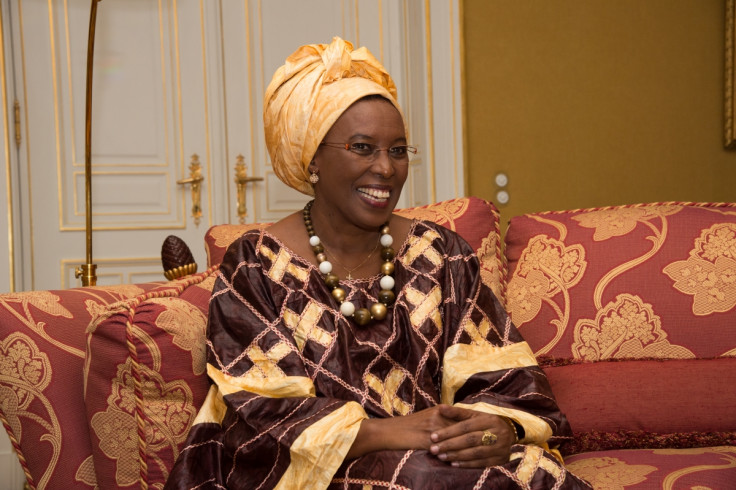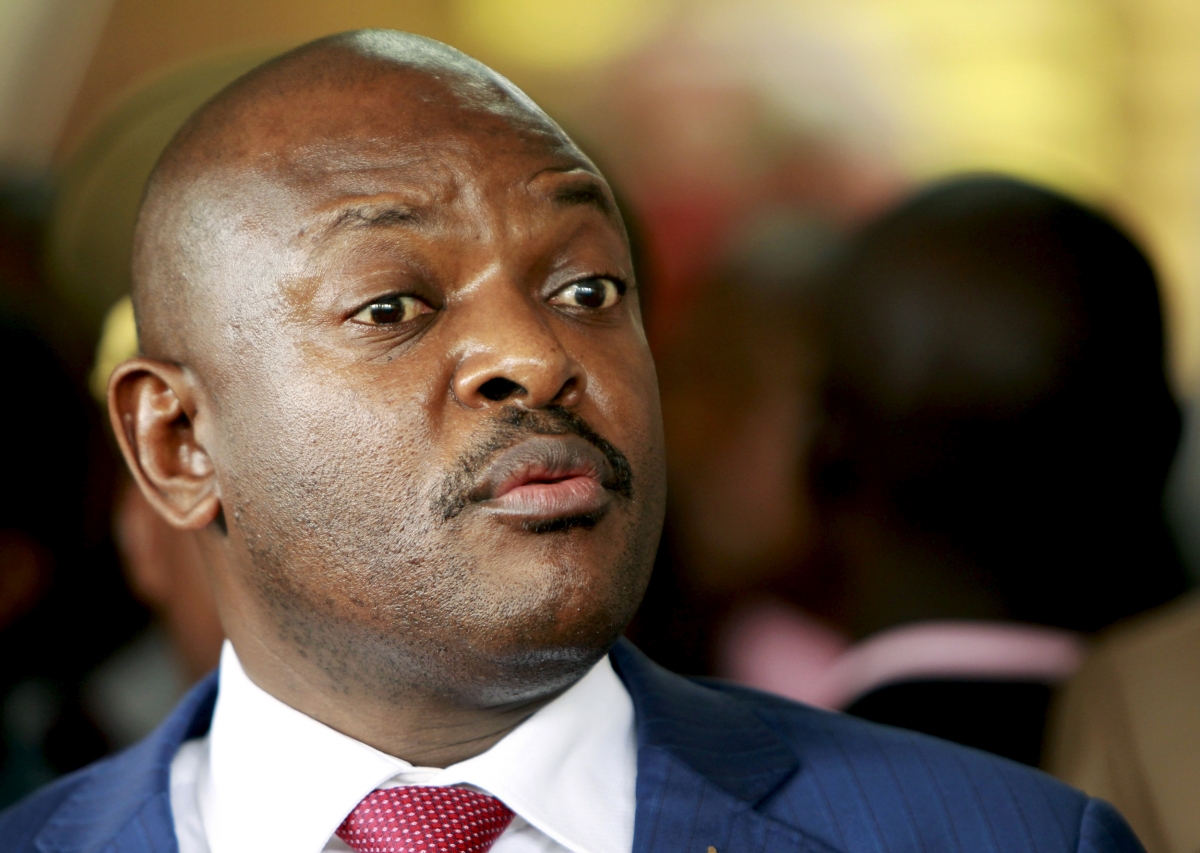Burundi crisis one year on: 'Don't let us be killed like flies' says activist Marguerite Barankitse

A leading humanitarian activist from Burundi has appealed for the international community to take stronger action against the president, who she accused of orchestrating a wave of sectarian violence that is threatening to push the country back into civil war. Marguerite Barankitse said genocide was 'in the making' in the tiny African nation, but it could be stopped only if world powers took a clear stand against President Pierre Nkurunziza.
"I want to reiterate a cry of alarm to the international community: don't leave us to die like flies or little mice because we are your brothers and sisters," the activists told IBTimes UK on the side-lines of an event in commemoration of the victims of the Armenian Genocide in Yerevan, where she was awarded for her humanitarian work for children.
Burundi, which emerged from a long conflict between the Hutu and Tutsi ethnic groups only in 2005, is facing renewed turmoil since Nkurunziza announced a controversial plan to run for a third term last year.
The crisis started exactly one year ago, on 26 April 2015 as demonstrators took to the streets to argue that the constitution allows only two mandates. A violent repression and a botched coup swiftly followed.
In July, Nkurunziza, a former Hutu rebel leader, won contested elections, but the situation has since remained unstable with tensions escalating along sectarian lines. Over the past 12 months, more than 400 people have been killed and a further 250,000 displaced. Torture and hundreds of forced disappearances have also been documented.
In the latest incident, Athanase Kararuza - a Tutsi army general loyal to Nkurunziza - was gunned down, with his wife and a bodyguard, in the capital Bujumbura, by unidentified gunmen on 25 April.
Barankitse, a Tutsi who won international praise for helping Hutus and Tutsi alike as civil war first broke out in 1993, accused Nkurunziza of deliberately fuelling ethnic tensions to divert from the political origins of the crisis.
She said, in recent months, that pro-government militias and security forces have increasingly shifted their focus from opposition members to young Tutsis. "He is killing those who study and can rebuild the country, those who can have a progeny. An entire generation will be sacrificed completely, decimated," she said.
Barankitse branded Nkurunziza a criminal and urged the International Criminal Court (ICC) in The Hague to prosecute him. She also accused France, which traditionally has a strong influence on African affairs, of turning a blind eye to the government's violations, failing to meet its credentials as a defender of human rights.
"Why France continues to support Nkurunziza?" asked Barankitse, a recipient of the legion d'honneur. "We are a francophone country, we expected a real support. It is a country of democracy and human rights. I think we are a little deluded by our friends".
France and the EU have urged an end to violence and called for peaceful dialogue between conflicting parties. But Nkurunziza has not been directly accused of the crisis. Fondly referred to as Maggy, on 24 April Barankitse was awarded $1.1m (£760,000, €1m) as the winner of Aurora Prize for Awakening Humanity, for her role in saving the lives of some 30,000 children.
When civil war first erupted in 1993, she hid dozens of her Hutu neighbours, although they were later discovered by Tutsi militiamen and slaughtered before her eyes. Undeterred she went on to fund a children's shelter and a hospital, the Maison Shalom and REMA Hospital, that has assisted more than 100,000 people.
Maison Shalom focused on educating a new generation of Burundians, of all ethnicities, in order to break the circle of sectarian violence. The school is now shut as Barankitse was forced to flee the country for Rwanda.
The 59-year-old said she decided to quit the country after receiving a phone call from a man who claimed he had been tasked with killing her. "He said 'I can't kill you but don't come back home'," she said. Ironically, it was a diplomatic passport handed to her by Nkurunziza that eased her escape. She first found shelter at the Belgian embassy and eventually flew out of the country in June.
"I wanted to make Burundi a heaven on earth where people could live well but now it is a place where children are killed and women raped," she said.
Nevertheless she said to hold no hate but only compassion and anger towards Nkurunziza, adding she hoped he would realise that his actions were destroying the country "He must go The Hague ask forgiveness to his people and humanity," she said.


© Copyright IBTimes 2025. All rights reserved.






















